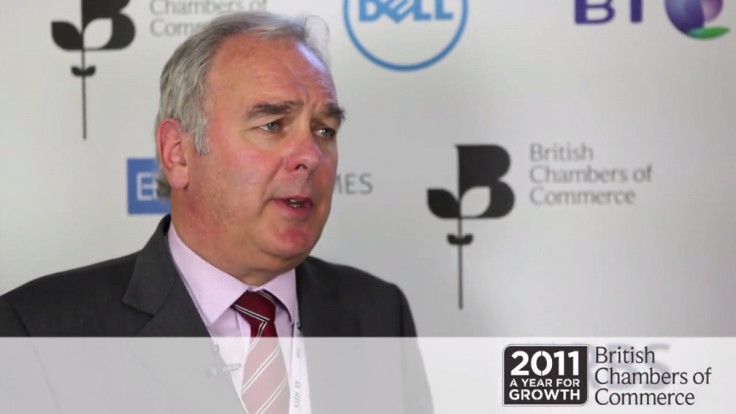JLR's Mike Wright: Energy costs that forced Tata to cut jobs to devastate UK competitiveness

High energy costs in the UK will have a devastating effect on the UK's competitiveness if nothing is done to reduce them, says Jaguar Land Rover boss Mike Wright. The executive director, who is one of the leading names in the manufacturing industry, says the cost of power is one of the factors holding UK businesses back.
Tata Steel said that the high cost of electricity was one of the main reasons the company – UK's biggest manufacturer – was forced to close its Scunthorpe plant. Wright told IBTimes UK that the high cost of power is one of several areas the UK most work on to prevent it sliding down the ranks of global competitiveness.
"In the UK, we have some challenges, particularly in the way that businesses are treated," he said. "Businesses are hurt in terms of energy costs compared to say other markets. If you're carrying that cost burden, that has tremendous effects on your international competitiveness."
The Jaguar Land Rover executive is the author of the Wright Report into advanced manufacturing, which was commissioned by former Shadow Chancellor of the Exchequer Ed Balls and Shadow Business Secretary Chuka Umunna. Wright named productivity, costs, innovation, skills and funding as the main areas of concern for the advanced manufacturing sector.
The 'Big Six' energy firms
- British Gas – owned by UK firm Centrica
- EDF Energy – owned by Électricité de France
- E.ON UK – the UK arm of Germany's E.ON
- npower – subsiduary of Germany's RWE
- Scottish Power – controlled by Spain's Iberdrola
- SSE – the only other British company in the Big Six
"I am talking about things like the cost of doing business," he explained. "There's no assured future for manufacturing for any country, including the UK, unless you uphold and improve your global competitiveness."
In 2015, UK firms were forced to pay energy companies £41.90 per megawatt hour, almost double the amount firms pay in Germany where costs are less than £22 per megawatt hour. However, Wright said the energy problem is only one of many hurdles UK manufacturing companies face.
The Competition and Markets authority launched an enquiry in the Big Six energy firms in the UK because of the high tariffs. The fact that customers could not easily change energy providers put a strain on competition in the sector.
The recent manufacturing slump in the UK, albeit lead by semimanufactures and commodities, has dragged down the economy and has hurt advanced manufacturing as well. In October, the sector's Purchasing Managers' Index hit a two-year low while national manufacturers' organisation EEF issued its first negative forecast since 2009.
"There is a clear need for a strong relationship between the sector and academia to make sure that large, at the front end research but also products and processes are continuously evolving," Wright said.
Filling the skills gap
One of the big hurdles in the UK for manufacturing companies is the widening skills gap. Now it is critical for the industry to connect with prospective engineers and for people to study science, technology, engineering and mathematics (STEM) subjects from a young age.
Engineering UK estimates that between 2015-2022, 2.56 million engineering jobs will open up, and according to the Institution of Engineering and Technology (IET) the UK needs 87,000 new engineers every year.
We need to have an education system that produces more people that have the capability of joining the sector and who are interested in joining the sector
"Fundamentally it comes back to the education system," Wright stated. "We need to have a system that produces more people that have the capability of joining the sector and who are interested in joining the sector."
He explained that Jaguar Land Rover and other firms work with schools and universities to get young people involved in STEM to fill the widening skills gap in the UK. Wright said he speaks to 300,000 school kids a year, including primary school kids, to get them thinking about engineering and advanced manufacturing from an early age.
"You choose your subjects at 14, and you will make a choice on the subjects that you take at GCSE which will probably influence what you do at A level which will [then] influence what you will do at university." That is why informing the students as early as possible is important, Wright claimed.
To further narrow the skills gap, advanced manufacturing businesses have started in-house education programmes for their staff.
"We just launched a new learning academy which looks at skills right from the start, from the time that people are employed with us to ensure that their skills are updated and that they are given the capabilities that mean that we can compete competitively," said Wright. "I mean, companies can do a lot and clearly we have our own programmes to fill our own needs."
© Copyright IBTimes 2025. All rights reserved.






















